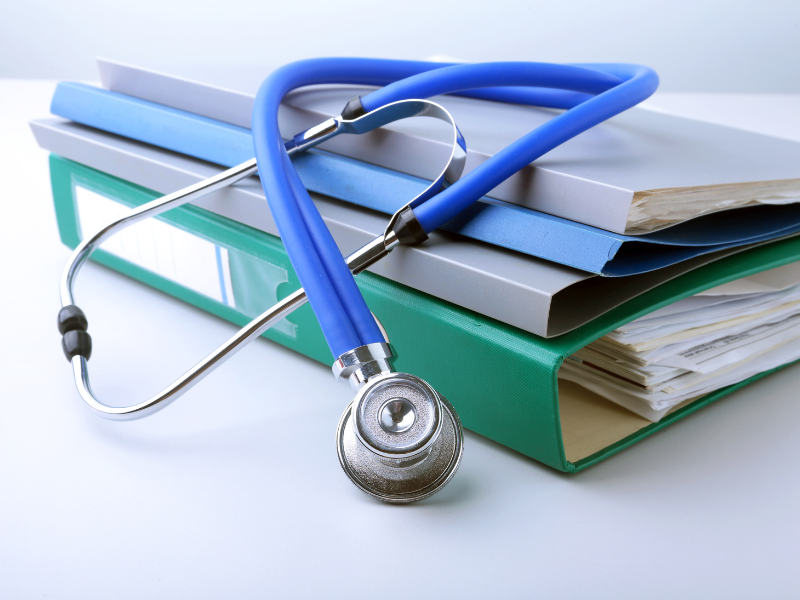When an emergency strikes, every second counts. In such critical moments, access to accurate and comprehensive medical records can mean the difference between life and death. Whether it’s a car accident, an unexpected illness, or a natural disaster, emergency responders and healthcare professionals rely on medical history to make informed decisions quickly. In this article, we’ll explore the crucial role medical records play in emergency situations, how digital health technologies support this, and what steps you can take to ensure your information is always accessible when it’s needed most.
What Are Medical Records?

Understanding the Basics
Medical records are detailed documents that include your entire health history, diagnoses, treatment plans, medications, allergies, surgeries, lab results, immunization dates, and more. They’re typically maintained by hospitals, clinics, or physicians but can now also be accessed digitally by patients through Electronic Health Records (EHR).
Types of Medical Records
- Electronic Medical Records (EMRs) – Digital versions used within one healthcare provider’s system
- Electronic Health Records (EHRs) – Broader systems that share information across providers
- Personal Health Records (PHRs) – Managed by the patient, often stored on apps or cloud platforms
Why Medical Records Matter During Emergencies
Quick Access to Critical Information
Emergency personnel need immediate access to:
- Allergies (e.g., penicillin, latex)
- Current medications (especially blood thinners, insulin)
- Chronic conditions (e.g., diabetes, heart disease)
- Recent surgeries or medical procedures
This information can help prevent complications and speed up proper treatment.
Accurate Diagnosis and Treatment
Without a patient’s medical background, doctors may have to rely on guesswork or risk delays in treatment. For instance, knowing a patient has a history of seizures or asthma can help emergency teams administer the correct medication or precautions.
Avoiding Dangerous Drug Interactions
Medication errors are one of the most common issues in emergency care. Accurate medical records prevent administering drugs that might conflict with current prescriptions or cause allergic reactions.
Medical Records and First Responders

What EMTs and Paramedics Look For
First responders typically look for:
- Medical alert bracelets or necklaces
- Wallet cards with basic medical data
- Mobile health apps that include emergency info
- Access to state or hospital health information networks
Real-Life Scenarios
Imagine a car crash victim is unconscious and wearing a medical ID bracelet showing they’re diabetic. Paramedics can immediately check blood sugar and provide glucose, potentially saving the patient’s life.
The Role of Technology in Emergency Access
Electronic Health Records (EHRs)
Hospitals increasingly use EHR systems to share medical data quickly. Many of these systems allow emergency rooms to access patient histories in seconds—even if the patient is not conscious.
Health Information Exchanges (HIEs)
HIEs allow data sharing between various health systems, helping hospitals and emergency centers get access to a patient’s record from another hospital or provider.
Mobile Health Apps
Apps like Apple Health or MyChart allow users to store medical data that can be accessed even from a locked phone. Some smartphones display emergency info on the lock screen.
Legal and Ethical Considerations
HIPAA and Emergency Exceptions
Normally, patient data is protected by HIPAA laws, but in emergencies, healthcare providers are allowed to share medical records for treatment purposes without prior consent.
Ensuring Security and Privacy
While sharing is vital during emergencies, it’s also important that systems have security in place to protect patient data from unauthorized access or misuse.
Preparing Your Medical Records for Emergencies
Steps You Can Take
- Keep copies of key medical documents stored securely
- Use a mobile health app to input your details
- Wear medical alert jewelry
- Inform family or caregivers where to access your medical data
What Should Be Included
- Full name and date of birth
- Allergies
- Chronic conditions
- Current medications and dosages
- Immunization records
- Insurance information
- Emergency contact numbers
The Role of Hospitals and Healthcare Providers

Emergency Protocols
Many hospitals now follow emergency protocols where medical staff are trained to immediately access patient records from connected databases upon arrival.
Integration With Emergency Services
Some advanced hospitals are integrated with 911 systems or EMS platforms, allowing real-time exchange of critical data from the scene to the ER.
Challenges in Emergency Medical Record Use
Incomplete or Outdated Information
If patients don’t update their medical records regularly, outdated data can be misleading or even dangerous in emergencies.
Interoperability Issues
Not all health systems talk to each other. Some providers still use paper records or incompatible EHR systems, making access difficult in multi-facility emergencies.
Lack of Patient Awareness
Many people don’t know how to manage their medical information or fail to carry any emergency data, which can hinder care.
The Future of Emergency Medical Records
AI and Predictive Analytics
AI tools are now helping emergency responders anticipate complications by analyzing patient history in real time and recommending actions.
Universal Health ID Systems
Some countries are exploring national health IDs that allow instant access to verified medical history across borders and health networks.
Blockchain Technology
Blockchain can secure medical data, track changes, and allow patient-controlled access even in emergencies.
Also Read : The Evolution Of Medical Diagnosis: From Ancient Practices To Modern Technology
Conclusion
Medical records are not just paperwork—they’re life-saving tools, especially in emergencies. From giving EMTs critical insights to helping ER doctors avoid dangerous treatments, accessible and accurate records are vital. As technology advances, both patients and healthcare systems must work together to ensure information is secure, up to date, and ready when it matters most. Being prepared today could save your life tomorrow.
FAQs
What information is most important in emergency medical records?
Key details include allergies, medications, chronic conditions, recent surgeries, and emergency contact information.
Can emergency responders access my medical records without permission?
Yes, in emergencies, HIPAA allows access to your records for treatment purposes without your consent.
How can I make my medical records available during an emergency?
Use medical ID bracelets, carry a medical card, or store your data in a smartphone health app with lock screen access.
Are digital medical records safe?
Yes, most EHR systems use encrypted technology, but it’s important to only use trusted providers and apps.
Should I share my medical history with my family?
Absolutely. Letting trusted family members know your medical background and how to access your records can be life-saving in emergencies.




